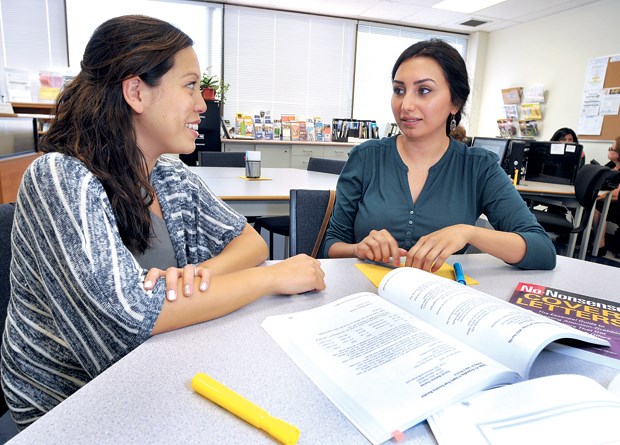Sarah Hosseini jumped through a lot of hoops while trying to find a job after moving to the North Shore from Iran four months ago.
The 35-year-old brings an impressive resume: she was a fine arts lecturer at a university in her home country and has a masters degree along with 11 years of experience, plus she has a good command of the English language.
Hosseini had to endure four interviews before she was hired in the paints department at a local home renovations store. While not the dream job she had hoped for, Hosseini said it’s just a temporary step until she gets her professional career back on track.
Half of 115 North Shore-based employers recently surveyed are reporting a shortage of skilled workers, yet many new immigrants are being overlooked for those positions because they don’t have the right connections.
The findings are part of a study conducted by the North Shore Immigrant Inclusion Partnership which found the shortage is most severe in the construction industry, with 50 per cent of the industry lacking employees with pertinent trades experience.
Retail, health care and education are other fields experiencing skilled labour deficits on the North Shore.
However, companies struggling to recruit new talent rarely reach out to government-funded employment services or immigrant-serving agencies to find workers, according to the report.
Referrals from colleagues, employees or friends is the most common recruitment technique for 78 per cent of the survey’s respondents.
For someone new to the North Shore, let alone the country, not having an “in” with a company is one of the challenges faced by some of the 2,000 immigrants who move to the area each year.
“Many of these immigrants are highly educated, experienced professionals but they struggle to find employment,” said North Shore Multicultural Society executive director Elizabeth Jones.
Hosseini credits the North Shore Multicultural Society with helping her find a transition job while she takes courses to upgrade her certification so she can teach in Canada.
The not-for-profit agency provides a range of services, including a WorkBC employment program, to help immigrants orient themselves and function personally and professionally in their new surroundings.
Hosseini learned how to create a resume and cover letter which she said are not commonly used in Iran.
English comprehension is key if new immigrants want to have a successful outcome in their job search. There are 525 people who attend government-funded English classes at the multicultural society every week, while 4,000 newcomers access services at the centre each year.
Approximately 62 per cent of the society’s clients are from Iran, with China the next largest country of origin, followed by the Philippines.
Looking at the skilled workers shortage, the multicultural society’s employment services centre manager, Sashah Damji, said it’s rare for them to encourage clients to change careers to where the growth is.
If new immigrants can’t find work in their field, and it’s not feasible to upgrade their professional certification, often case workers will nudge them towards a related career path.
Three to six months is the average time it takes for clients to find even a basic job. As for the disconnect between potential employers and new immigrant job seekers, Jones said the multicultural society is trying to bridge that gap.
Only recently has the society been able to offer a job placement program and hold recruitment fairs, which are valuable tools in the agency’s employment services arsenal to help immigrants make an initial connection with a company.
To address its skilled labour shortage, North Vancouver-based Darwin Construction is currently working with six or so different recruiting companies with a focus on hiring specifically North Shore residents, said the company’s president, Oliver Webb.
Webb said he’s hired new immigrants and found they are hard workers.
“Knowing they are coming to a new country they are more motivated to establish roots for their families,” said Webb.



